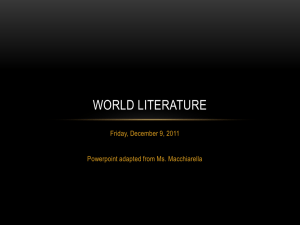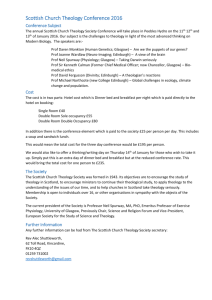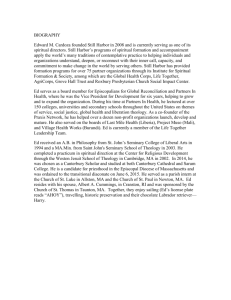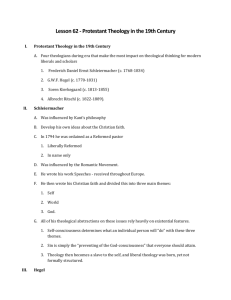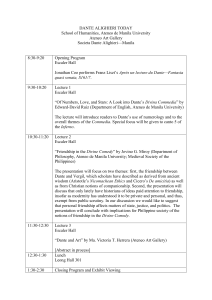Background to Dante`s Can Grande “forma tractandi”
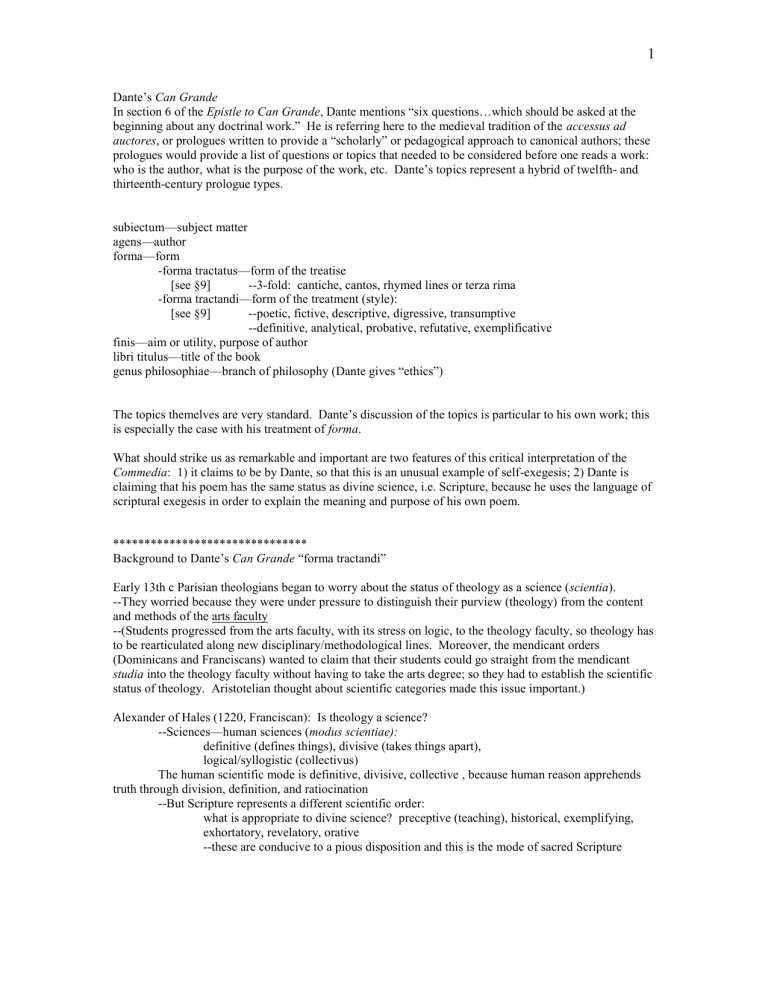
1
Dante’s Can Grande
In section 6 of the Epistle to Can Grande
, Dante mentions “six questions…which should be asked at the beginning about any doctrinal work.” He is referring here to the medieval tradition of the accessus ad auctores , or prologues written to provide a “scholarly” or pedagogical approach to canonical authors; these prologues would provide a list of questions or topics that needed to be considered before one reads a work: who is the author, what is the purpose of the work, etc. Dante’s topics represent a hybrid of twelfth- and thirteenth-century prologue types. subiectum—subject matter agens—author forma—form
-forma tractatus—form of the treatise
[see §9] --3-fold: cantiche, cantos, rhymed lines or terza rima
-forma tractandi—form of the treatment (style):
[see §9] --poetic, fictive, descriptive, digressive, transumptive
--definitive, analytical, probative, refutative, exemplificative finis—aim or utility, purpose of author libri titulus—title of the book genus philosophiae—branch of philosophy (Dante gives “ethics”)
The topics themelves are very standard. Dante’s discussion of the topics is particular to his own work; this is especially the case with his treatment of forma .
What should strike us as remarkable and important are two features of this critical interpretation of the
Commedia : 1) it claims to be by Dante, so that this is an unusual example of self-exegesis; 2) Dante is claiming that his poem has the same status as divine science, i.e. Scripture, because he uses the language of scriptural exegesis in order to explain the meaning and purpose of his own poem.
*******************************
Background to Dante’s Can Grande “forma tractandi”
Early 13th c Parisian theologians began to worry about the status of theology as a science ( scientia ).
--They worried because they were under pressure to distinguish their purview (theology) from the content and methods of the arts faculty
--(Students progressed from the arts faculty, with its stress on logic, to the theology faculty, so theology has to be rearticulated along new disciplinary/methodological lines. Moreover, the mendicant orders
(Dominicans and Franciscans) wanted to claim that their students could go straight from the mendicant studia into the theology faculty without having to take the arts degree; so they had to establish the scientific status of theology. Aristotelian thought about scientific categories made this issue important.)
Alexander of Hales (1220, Franciscan): Is theology a science?
--Sciences—human sciences ( modus scientiae): definitive (defines things), divisive (takes things apart), logical/syllogistic (collectivus)
The human scientific mode is definitive, divisive, collective , because human reason apprehends truth through division, definition, and ratiocination
--But Scripture represents a different scientific order: what is appropriate to divine science? preceptive (teaching), historical, exemplifying, exhortatory, revelatory, orative
--these are conducive to a pious disposition and this is the mode of sacred Scripture
2
NOTE: these are literary, generic terms: preceptive: Pentateuch; historical/exemplifying: historical books of Scripture; exhortative: the sapiential books; revelatory: prophetic books; orative (prayer): Psalms (can do same with NT: e.g. Acts is historical, Apocalypse is revelatory, etc.)
So the establishing of theology’s own scientific status is predicated on the literary status of the Bible—the
Bible works through poetic genres. While many scholars still considered theology mainly a speculative (or theoretical) science, the idea of theology as primarily affective (inducing piety, moving emotions, culminating in love and penitence) had a strong argument.
Thus on this view, theology is affective, human science is intellective.
But the affective view of theology also focuses on what human author brings to the mix: genres, styles.
The theologians borrow terms from (secular) rhetorical theory: precept, example, exhortation, teachplease-move/persuade
Dante’s two modes under forma tractandi :
1st series: poetic, fictive, descriptive, digressive, transumptive (figurative)
2nd series: definition, division, proof, refutation, giving of examples (cf. Alexander of Hales above: clear statements, clarification)
Obviously this reflects the debates of the previous century over modes of divine and human sciences.
Dante claims that the Commedia comprises the affective, rhetorical, pious mode of Scripture, and the ratiocinative mode of human sciences.
Dante has invoked two sets of terms to identify his vernacular text both with poetry—but the divine poetry of Scripture—and with divine science. Note that he uses the term “ forma tractandi”— borrowing his vocabulary from Scriptural exegesis. But he also identifies his vernacular text with the human sciences.
This follows on his mapping of biblical polysemousness onto the Commedia (section # 7)
Yet note that in section #16, the branch of philosophy is given as ethics. Does this mean that he views the work as human science/non-sacred literature, or does it mean that he’s resisting the idea that theology is speculative, and seeing it rather as practical?





